
Speakers
2nd Congress by the SMITH Consortium of the Medical Informatics Initiative | June 28th – 29th 2022, dbb forum berlin
The speakers of the SMITH Congress 2022:

Dr. Franziska Bathelt
Co-Head of the Digital Hub MiHUBx
Scientific deputy of the professorship for Medical Informatics,
Institute for Medical Informatics and Biometry,
Center for Medical Informatics,
Dresden University of Technology
“The increase in more complex disease patterns requires better access and sharing of knowledge across all healthcare sectors. Digital technologies offer great potential to support research efforts from routine data and to transfer the resulting knowledge into healthcare. Hand in hand, opportunities are emerging to facilitate workflows and to diagnose and treat patients more appropriately.“

Tobias Brieden
Head of Data Integration Center,
Essen University Hospital
“Increased harmonization of standards is essential for the further development of digitization in the medical sector in Germany. Here, healthcare and research must be thought together in order to create sustainable added value for patients.“
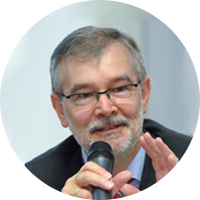
Hans-Peter Bröckerhoff
Moderator “NEW SOLUTIONS IN DIGITAL HEALTH”
Founder and longtime editor of the trade magazine E-HEALTH-COM
“During the pandemic, the shortcomings in the digitization of the German healthcare system once again became particularly apparent. Nevertheless, the time for lamenting is over. The stakeholders are continuing to drive digitization forward – also within the framework of the Medical Informatics Initiative. That is why I am looking forward to the 2nd congress of the SMITH Consortium and the reports and discussions there.“

Jun.-Prof. Dr. Jan Christoph
Scientific Head
Data Integration Center / Working Group (Bio-)Medical Data Science,
University Hospital Halle (Saale)
“In order to support research and subsequent healthcare with innovative IT services as well as routine clinical data, Data Integration Centers are the next basic pillar. Nevertheless, the sustainable establishment of a Data Integration Center is still an ongoing challenge. Without mastering this challenge, however, a university hospital will no longer be able to participate in top-level and high-ranking collaborative research in the medium term.“
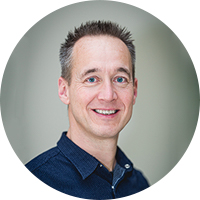
Ronald Cornet, PhD
Associate Professor; Principal Investigator
Medical Informatics,
Amsterdam Public Health Research Institute,
Amsterdam UMC
“Healthcare is among the key application domains that drive research in innovative areas such as machine learning. A pressing challenge is to make such groundbreaking research contribute to healthcare, closing the quality improvement cycle to establish effective, efficient and sustainable healthcare. This requires a close alignment across healthcare, computer science, and health informatics, in which high-quality data is a vital.“
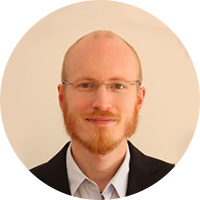
Dr. Felix Erdfelder
Acting Head of the Data Integration Center,
University Hospital Bonn
“Not least the current pandemic has shown that sustainable linkage of research and healthcare is a prerequisite for reliable and rapid research results. Sustainable linkage enables us to respond quickly and effectively to old and new threats to the health and well-being of our patients.“

Prof. Dr. Joachim Fischer
Head of the Digital Hub LeMeDaRT
Department of General Medicine at the CPD-BW,
University Hospital Mannheim
“Everyone is talking about the patient journey. But it remains unacceptably fragmented. We continue to develop digital products for outdated care structures. So far, there is a lack of integrating solutions for better patient benefits across the entire healthcare value chain. We should support structural innovation in healthcare with suitable digital solutions.“
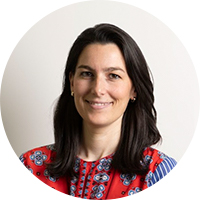
Dr. Anne Sophie Geier
Director of the German Digital Health Association
“The healthcare of the future will be decisively shaped by digital solutions. These solutions will contribute significantly to overcoming future challenges and creating a system that focuses on patients and their individual needs. Digital applications will play a key role in enabling patients to receive safe, high-quality healthcare.“
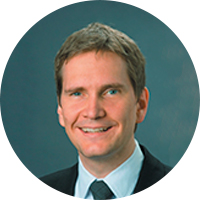
Dr. Jan Gewehr
Head of the Research and Integrative Systems Department,
Business Unit IT,
University Medical Center Hamburg-Eppendorf
“The sustainable networking of research and healthcare is an essential basis for fast, flexible and to current challenges oriented measures to maintain and expand the effectiveness of our healthcare system.“
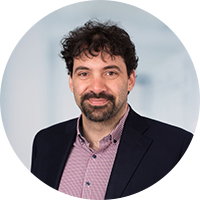
Prof. Dr. Stephan Jonas
Director of the Institute for Digital Medicine,
Faculty of Medicine,
University of Bonn
“Practice-driven research can only succeed in the long term if not only various research and healthcare institutions are digitally networked, but this networking also extends across sectors and disciplines all the way to the patients themselves. Only then will the data and synergies be created that are necessary for patient-centered care in healthcare and that allow disruption through digital medicine.“
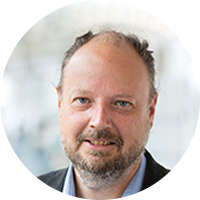
Prof. Dr. Toralf Kirsten
Chair of Medical Data Science,
Faculty of Medicine,
Leipzig University
Head of Department Medical Data Science,
Medical Informatics Center,
University of Leipzig Medical Center
“We see the ongoing digitization of medicine as both a foundation and a driver. It enables well-founded and evidence-based medical research, the results of which are transferred to healthcare. Medical informatics forms the intersection between new methods and processes from informatics and the requirements of everyday medical practice. It is thus a constant driver of digitization as well as its benefit in terms of medical research and the well-being of patients.“
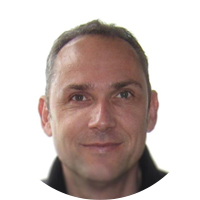
Dr. Christoph Klein
Policy Officer, Principal Administrator,
International Cooperation, G20,
European Commission
“Digitization and interoperable data are the key to enable evidence-based person-centred health and care provision including cross-borders.“
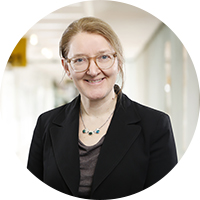
Prof. Dr. Dagmar Krefting
CAEHR Coordinator,
Director Department of Medical Informatics,
University Medical Center Göttingen
“Decisions are based on knowledge, knowledge is based on data: For better decisions in healthcare, we need networked, structured data that enable us to capture and understand the complex relationships between disease development, individual risk factors, environmental influences, and societal conditions. This is as simple in theory as it is difficult in concrete implementation. The beauty as well as the challenge is that it is only possible together with all those involved.“

Prof. Dr. Markus Löffler
Head of the SMITH Consortium,
Director of the Institute for Medical Informatics, Statistics and Epidemiology,
Leipzig University
“The Medical Informatics Funding Concept provides a strong impetus for the emergence of a digitally networked healthcare system. In the SMITH Consortium, patient care data is brought together via a secure IT architecture. The goal is new insights from research for better patient care.“

Mina Luetkens
Managing Partner,
Patients4Digital gGmbH
“To meet the challenges of healthcare in the era of Health 4.0, we cannot avoid topics such as digital identity and data sovereignty, Internet 3.0 solutions and data infrastructure. Against this backdrop, the transformation of the doctor-patient relationship in particular needs a new perspective, as does the assessment of quality of healthcare. Therefore, above all, we need a contemporary data culture.“
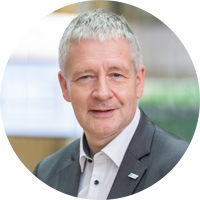
Prof. Dr. Gernot Marx
2nd Spokesman SMITH Consortium,
Head of the Digital Hub DISTANCE
Spokesman of the Executive Board of the Innovation Center Digital Medicine,
Head of the Department for Intensive Care Medicine,
University Hospital RWTH Aachen
“One goal of the digitization of healthcare is to treat patients more individually. As part of SMITH, the ASIC Use Case has been successfully executed at eight clinical sites since 2018. The digitally collected data sets comprise nearly 15,000 individual data records with over 200 parameters on patients receiving intensive care. This unique dataset is an important building block for further research. The success in the ASIC Use Case thus forms a strong foundation for the further intersectoral networking.“
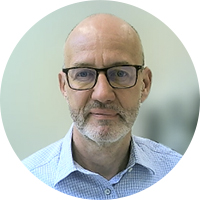
Dr. Frank Meineke
IT Coordinator and Project Manager,
Institute for Medical Informatics, Statistics and Epidemiology,
Leipzig University
“Every patient’s documented clinical care provides valuable information that can advance medical research and improve the future treatment of all patients.
With SMITH and the MII, we have set out to extract information from this data and make it available in such a way that new knowledge can be created from it. This is what the SMITH Phenotyping Pipeline supports.“

Prof. Dr. Folker Meyer
Chair of Medical Informatics with specialization in Medical Data Science,
Institute for Artificial Intelligence in Medicine (IKIM),
Essen University Hospital
“Truly personalized medicine, without sacrificing the added value of European data protection rules, can only be achieved through sustained networking of research efforts in medicine, informatics and life science.“
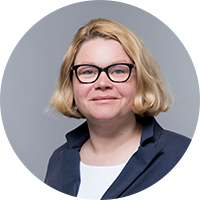
Dr. Sylvia Nürnberg
Junior Research Group Leader Secondary Use of Healthcare Data,
Institute for Applied Medical Informatics,
University Medical Center Hamburg-Eppendorf
“Digital data is expected to transform medicine. However, most of today’s medical data lacks interoperability: Hidden in isolated databases, incompatible systems and proprietary software, data is difficult to share, analyze and interpret. This slows medical progress by preventing technologies from reaching their full potential.“
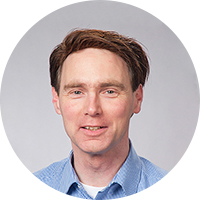
Dr. Torsten Panholzer
Head of the DigitalHub DECIDE
Acting Head of the Department of Medical Informatics,
Institute for Medical Biostatistics,
Epidemiology and Informatics,
University Medical Center Mainz
“The digitization of processes in healthcare, also in conjunction with artificial intelligence, offers many opportunities. This development should also benefit research with healthcare data. Standardized approaches can facilitate the use of data legally and organizationally.“
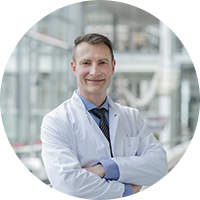
Prof. Dr. Mathias Pletz
Director of the Institute for Infectious Medicine and Hospital Hygiene,
com. Director of the Institute of Immunology,
Jena University Hospital
“Digitization enables the medical history, imaging and laboratory parameters required for therapy to be quickly summarized, clearly presented and placed in the context of guidelines. This improves the quality of treatment because patients receive optimal therapy at an early stage.“
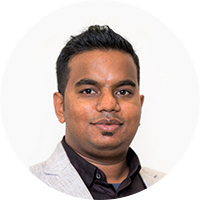
Dr. Sasanka Potluri
Junior Research Group Leader “KI-LoV”,
Institute for Medical Statistics, Informatics
and Data Science,
Jena University Hospital
“A hospital is a complex technical system in which numerous factors are involved. Healthcare logistics plays a critical role in the efficient operation of the hospital by increasing service quality while reducing costs. Modern data-driven AI approaches facilitate the achievement of the hospital’s desired functionality.“

Prof. Dr. Hans-Ulrich Prokosch
Coordinator MIRACUM Consortium,
Head of the Digital Hub MIDIA-Hub
Chair of Medical Informatics,
Institute for Medical Informatics, Biometry and Epidemiology,
Friedrich-Alexander University Erlangen-Nuremberg
“After we have opened up, integrated and made accessible the data of the university hospitals for medical research in the current phase of the Medical Informatics Initiative, it is now time to expand these activities beyond the boundaries of our hospitals. With our Digital Hub, we are taking an important step toward digitally connecting physicians in private practice and also patients with the university hospitals in Erlangen and Munich rechts der Isar.“
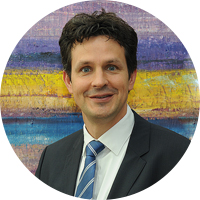
Thomas Renner
Head of subdivision “Digitalization and Innovation”,
Federal Ministry of Health
“An outstanding goal of this legislative period in the area of health is to further improve data availability in the healthcare sector and to significantly expand the possibilities of data use for direct health care and research. We must enable high-quality data to be available in a timely and interoperable manner and reduce legal uncertainties about who may process this data and for what purpose.“
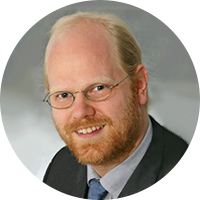
Prof. Dr. Rainer Röhrig
Director of the Institute for Medical Informatics,
University Hospital RWTH Aachen
“Evidence-based medicine is not possible without close networking of research and healthcare. Data from routine practice are the basis for scientific findings. These scientific findings are applied with physician expertise to individual patient data and patient needs. These tasks can only be accomplished with interdisciplinary and interprofessional teams.“
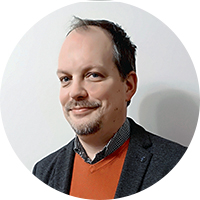
Prof. Dr. André Scherag
Congress President New Solutions in Digital Health
Director of the Institute for Medical Statistics, Informatics and Data Science,
University Hospital Jena, Germany
1st Speaker SMITH Consortium
“We want to sustainably improve clinical research and patient care. Among other things, this requires better use of data. For that to happen, the entire process of data collection must become more transparent. Because only then will it become clear which questions can be addressed with the available data and which cannot. It’s important to understand that technology and data are merely necessary prerequisites for this.“
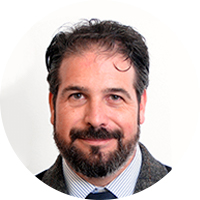
Nick Schneider
Head of Division 511 –
New technologies and data use,
Federal Ministry of Health
“The pandemic has shown that good healthcare needs research, and research is best based on good healthcare. It is time to bring research and healthcare together. The European Health Data Space, the Health Data Utilization Act announced in the coalition agreement and the establishment of a networked research data infrastructure offer us the opportunity to make data usable for the benefit of patients in compliance with data protection laws. Let’s get it done!“
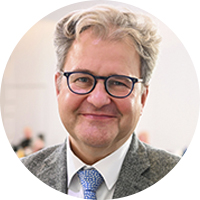
Sebastian C. Semler
Director of TMF e.V. – Technology, Methods, and Infrastructure for Networked Medical Research
“We need to build and develop data infrastructures consistently and systematically. Initiatives such as the Medical Informatics Initiative make an important contribution to ensuring that healthcare data can be used for research and that the prevention, diagnosis and treatment of diseases can be optimized. The German government’s focus on a decentralized research data infrastructure is the right approach.“

Prof. Dr. Cord Spreckelsen
Chair of Medical Informatics,
Institute for Medical Statistics, Informatics and Data Science,
Jena University Hospital
“Digitization strengthens the feedback between research and healthcare: It makes it easier to find, evaluate, and combine research results and to use them as decision support for high-quality patient care. For their part, quality-assured and comprehensible healthcare data form an indispensable basis for innovative knowledge generation.“
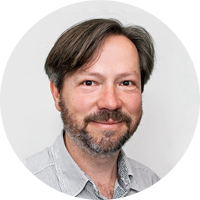
Dr. Daniel Tiller
Head of Data Integration Center,
University Hospital Halle (Saale)
“The sustainable networking of research and healthcare is only possible if patients make their data available to researchers and trust them. Person-identifying data and medical data are very sensitive information whose access requires special protection. For this purpose, trust centers are established at the Data Integration Centers, which offer data protection-compliant solutions for medical research by means of specialized software and appropriate organizational connections.“

Dr. Alexandr Uciteli
Junior research group leader “Terminology- and ontology-based phenotyping”,
Institute for Medical Informatics, Statistics and Epidemiology,
Leipzig University
“By sustainably networking research and healthcare, clinical experts are enabled to identify relevant individuals for further studies and to select and analyse the necessary data. The combined use and analysis of data through innovative IT solutions can thus contribute to new insights in biomedicine and improve the diagnosis and treatment of diseases.“
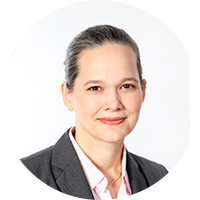
Prof. Dr. Veronika von Messling
Ministerial Director and Head of the Life Sciences Department,
Federal Ministry of Education and Research
“A crucial contribution to combating disease is rapid access to reliable data and its smooth exchange between medical research and patient care. Anchoring this data sharing in a sustainable way for research and healthcare is, in my view, one of the most important tasks for the coming years.“
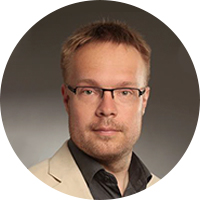
Dr. Thomas Wendt
Head of Data Integration Center,
University of Leipzig Medical Center
“Our clinical researchers want to use MII’s integration solutions for their projects immediately if we even hint at the possibilities. However, we can only achieve real benefits of use with consistent integration into core infrastructures. This also includes securing operations through the funding mechanisms of research and healthcare.“

